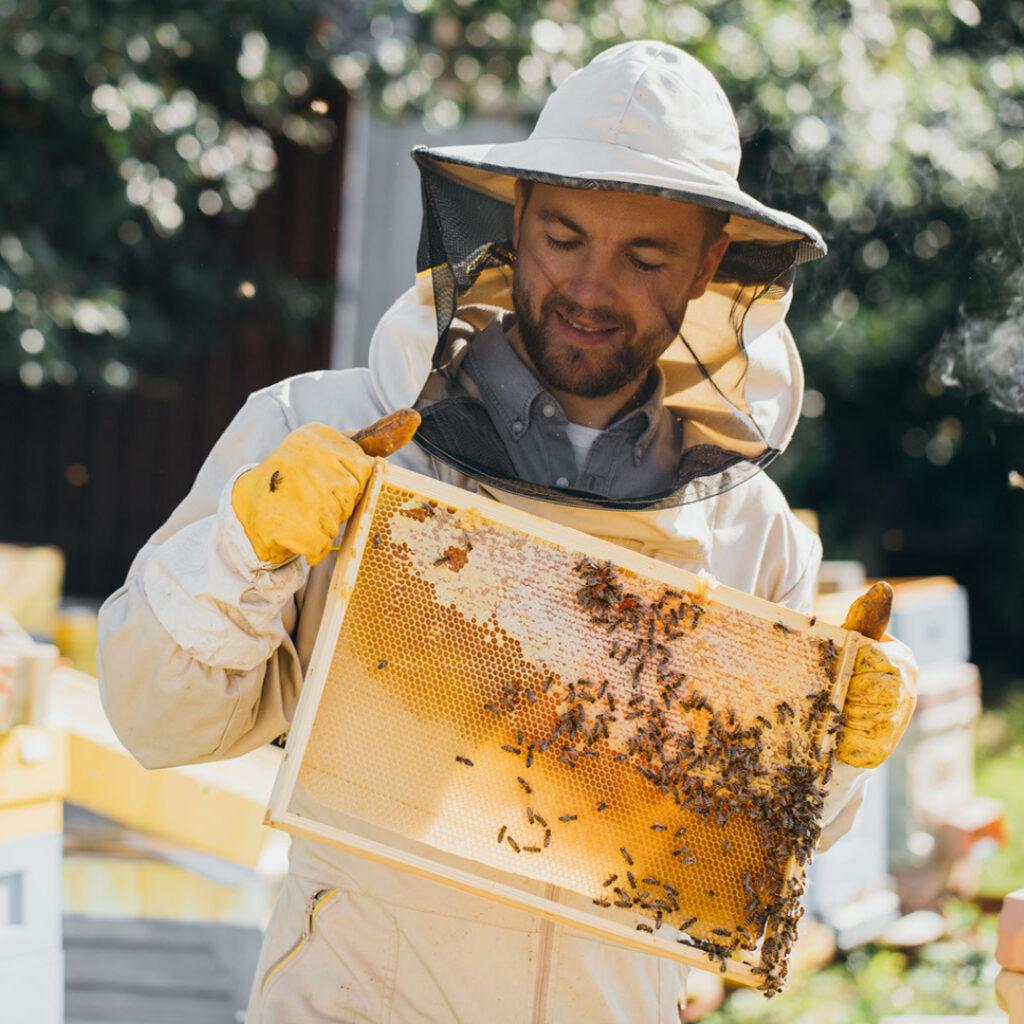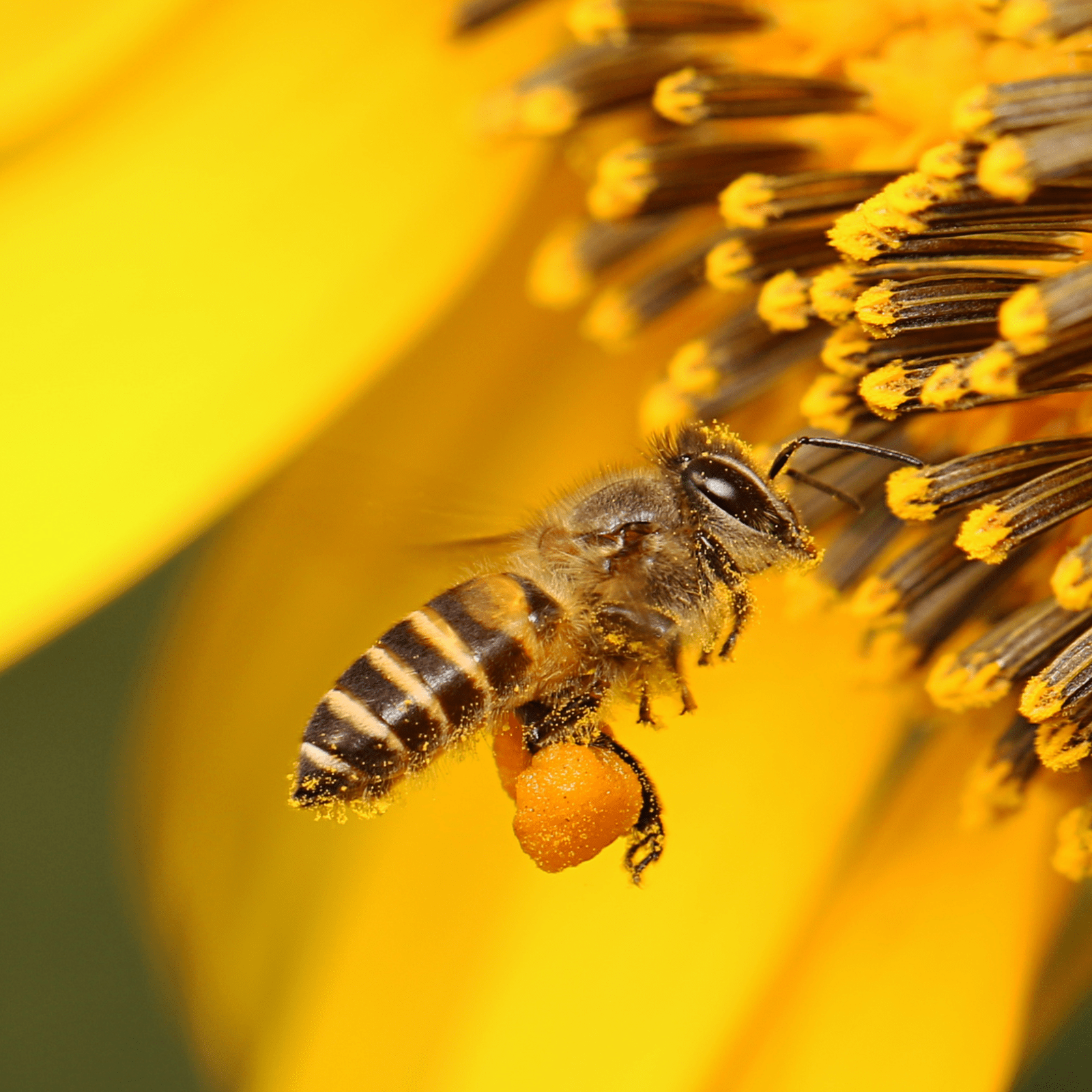Being a beekeeper today means playing a fundamental role for our planet by safeguarding and protecting bees day after day.
The beekeeper plays a fundamental role in protection of the environment, in storage of biodiversity and in support to agriculture. A profession of fundamental importance for the survival of bees, the production of high quality honey and for the balance of ecosystems.
But also ancient and fascinating that follows i natural rhythms of bees, takes place in the open air, full of satisfaction and also many responsibilities. But who is the beekeeper and why does he have such an important role for the future of bees?
The charm of beekeeping
Beekeeping represents an important activity for the rural economy. In Italy it is mainly managed by small beekeepers who are dedicated to the production of honey, but also to pollinate fruit trees and agricultural crops. The exact origins of beekeeping are difficult to determine precisely, but there are findings that demonstrate howman has been harvesting honey since prehistoric times.
Starting from the Middle Ages, then, inside the monasteries they were the same monks to raise bees. These were initially kept in hollowed-out tree trunks, called "skeps", and later the first mobile hives were created.
Bee products were not only used for food and to heal but also to conduct studies and research which are still the basis of many uses in cosmetics and herbal medicine.
Why do we need beekeepers?
Dedicating yourself to beekeeping is not easy. You need to have passion and practice but also good training. You need to know the regulations and be aware of the many difficulties and dangers to which bees are exposed.
But it is above all a great mission : the work of beekeepers is crucial and has a huge impact on society and the entire ecosystem. Here are some reasons:
Pollination and food security
Pollination carried out by bees is essential for food production. Over 75% food crops depend on it to produce fruits, vegetables and seeds. Without bees, many of these crops would not be able to produce significant harvests. The work of beekeepers ensures the very existence of bees and the possibility of pollinating fields and orchards. In this way, they contribute to food safety and crop diversity.
Conservation of biodiversity
Pollination by bees contributes to the reproduction of wild plants, trees and shrubs. This favors the diversity of plant species, keeping ecosystems balanced and promoting the conservation of native plants. Beekeepers play an active role in the habitat protection natural and in the promotion of sustainable agricultural practices for preserve biodiversity.
Production of honey and hive products
The work of beekeepers results in the production of a wide range of hive products, including honey, royal jelly, pollen, propolis and beeswax. These natural products are valued for their nutritional value, antibacterial properties and uses in the food, pharmaceutical and cosmetic industries.
Beekeepers, thanks to their work, offer products of high quality, coming from well-groomed bees and in healthy environments.
Sustainability and environmental conservation
Beekeepers adopt sustainable agricultural practices, avoiding the use of harmful pesticides for bees and promoting natural pest control methods. This contributes to the conservation of the environment, the health of the bees and the protection of the quality of the hive products. They are also committed to the protection of natural habitats, contributing to the conservation of natural resources and climate change mitigation.
Awareness raising and education
Beekeepers play a important role in raising awareness in society on the importance of bees and the environment. A fundamental role that makes them messengers and primary creators of bee conservation.
The tasks of the beekeeper
Bees are precious insects and at the same time sensitive and delicate. The beekeeper has a great responsibility for their protection and for their own future.
The beekeeper yes takes care of bees and their colonies. Select the different breeds adapted to the local conditions. He takes care the condition and cleanliness of the hives. Monitor their health and pay attention to diseases and parasites that can affect the colonies.
The beekeeper also takes care ofpollination entomophilous, essential for maintaining biodiversity and for the production of products such as bee venom, used in cosmetics for its beneficial effects.
Beekeepers are also the only ones who can intervene correctly and without harming bees to exterminate one place from one swarm. They care about moving the entire community to a safer and more secure place.
A job but also a passion that can offer great satisfaction. But what matters most is knowing how careful role of the beekeeper contributes day after day to save life on our planet!


